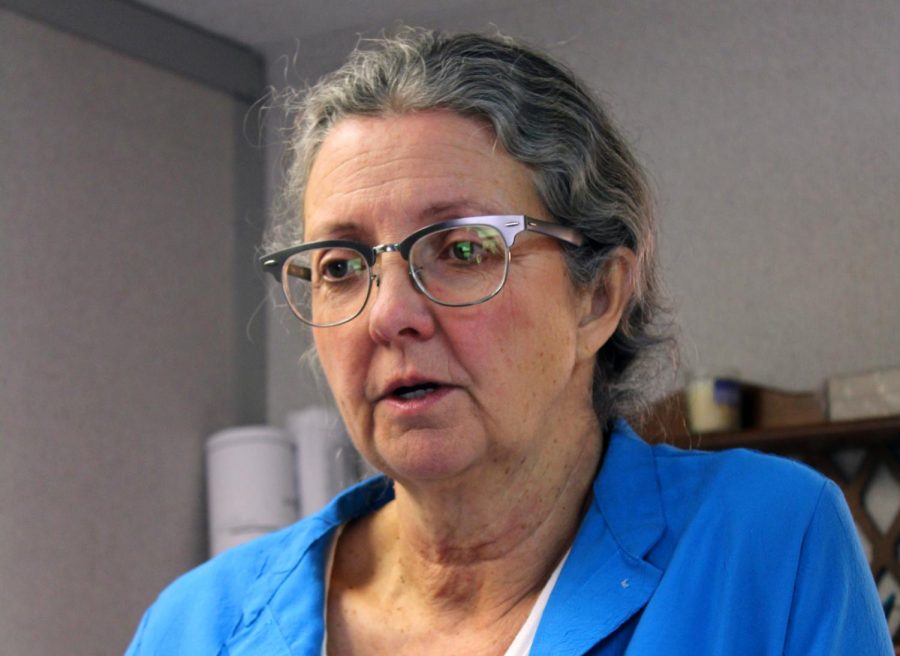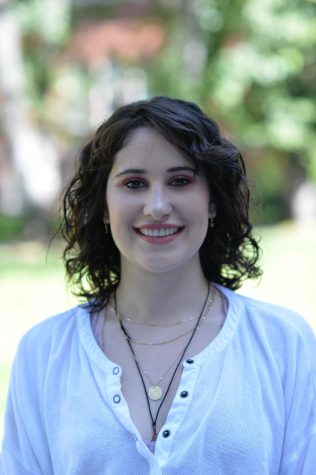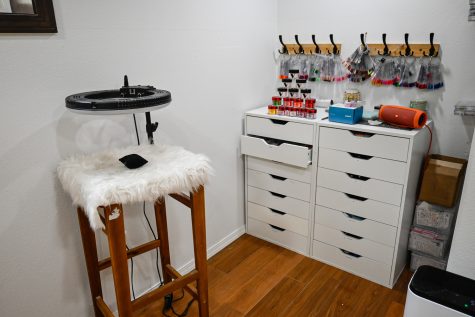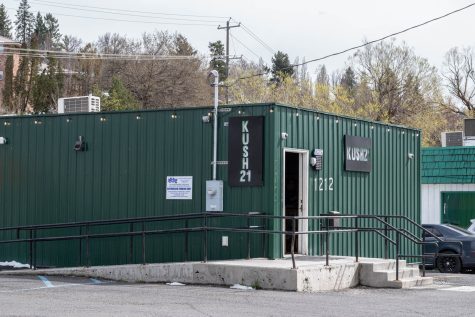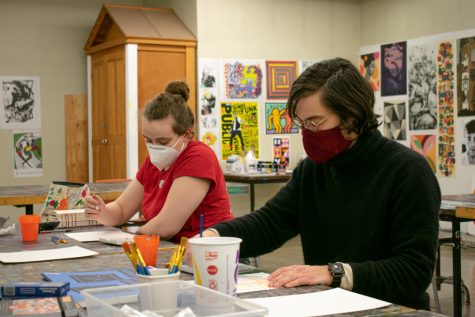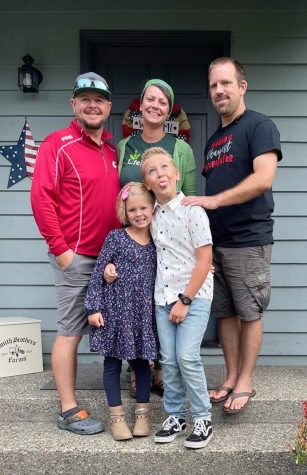Non-profit hires, supports locals
Organization offers life skills workshops, such as budgeting, GED tutoring with support coaches
ABBY TUTOR | The Daily Evergreen
HOPE Center Executive Director Sheri Anglen says watching people become empowered and successful after the program is her favorite part of her job. HOPE Center hires those who have trouble finding a job elsewhere.
December 11, 2017
The HOPE Center of Moscow serves as a place of employment for those who have been out of the work force for an extended period of time.
For DeDe McReynolds, HOPE Center service coordinator, providing a stable environment for people in need is just as important as running an affordable thrift store, she said.
Beginning as a “benevolence office,” the original HOPE Center assisted those with eviction notices or unpaid bills, giving them the funds to pay it off, McReynolds said. They have since shifted their mission.
“We hire people with a barrier that has kept them from gaining or keeping employment,” McReynolds said. “We want someone who is struggling to get a job, because that is what our program is built for.”
The HOPE Center does not only provide an occupation. Once employed, employees receive a number of life and work training workshops, with the purpose of reestablishing important life skills for those who have not been able to work, McReynolds said.
Some of these workshops include GED tutoring, during which employees are paired with a personal support coach. These coaches are older volunteers from the community, McReynolds said.
Volunteers also set up budgeting workshops, called “Money Talks,” during which employees can learn how best to spend their money and manage bank accounts, McReynolds said. Employees also must provide consistent drug tests to promote sobriety and stability.
“It’s pretty invasive in a lot of ways,” McReynolds said, “because for felons and recovering addicts, getting back into real life takes a considerable amount of time.”
The programs are goal-oriented, as many of the employees have a barrier preventing them from re-entering the workforce. McReynolds said she and her staff are there for their employees step-by-step to get them back on track.
“I believe we have impacted every single person who has come through,” McReynolds said. “I trust they leave believing they have value, and that is what I call a ‘soft success.’ ”
Sheri Anglen, HOPE Center executive director, spent the last seven years working with the constant flux of employees as well. The thrift shop in Moscow is one of many organizations working to help people with several kinds of needs, Anglen said.
“We customize the program to anyone in need, not just felons or addicts,” Anglen said. “We take in a lot of people who have been involved in domestic abuse cases who also have to totally start over, and that’s a painful process to go through alone.”
Successful cases are those in which a person in need takes a small step in the right direction, Anglen said. This could mean obtaining a driver’s license, signing a lease on stable housing or leaning on a steady place of employment.
“The hardest part is that you can’t make someone help themselves,” Anglen said. “You can’t force them to change or get back on track—they have to want it for themselves. We’re here just to develop a safe place of employment while they work through everything.”


